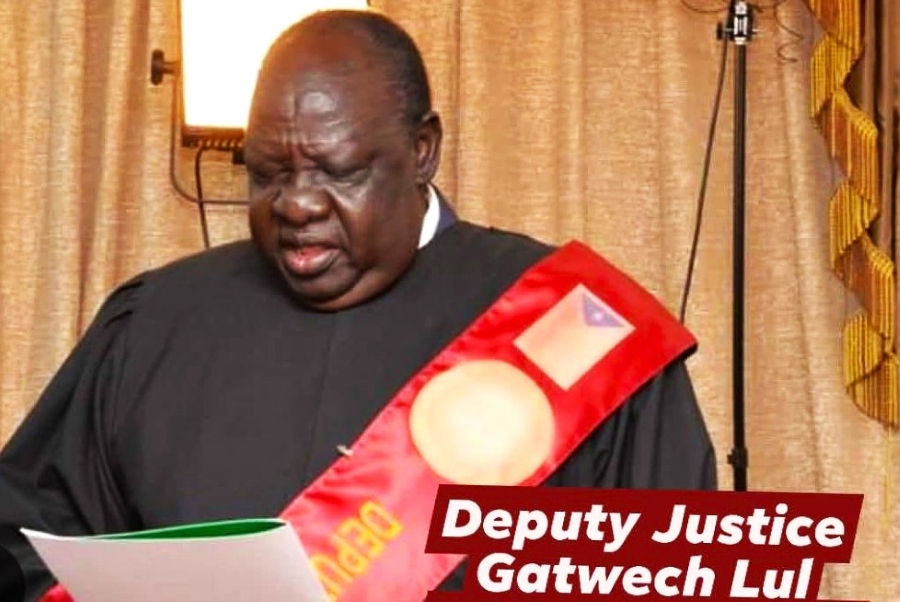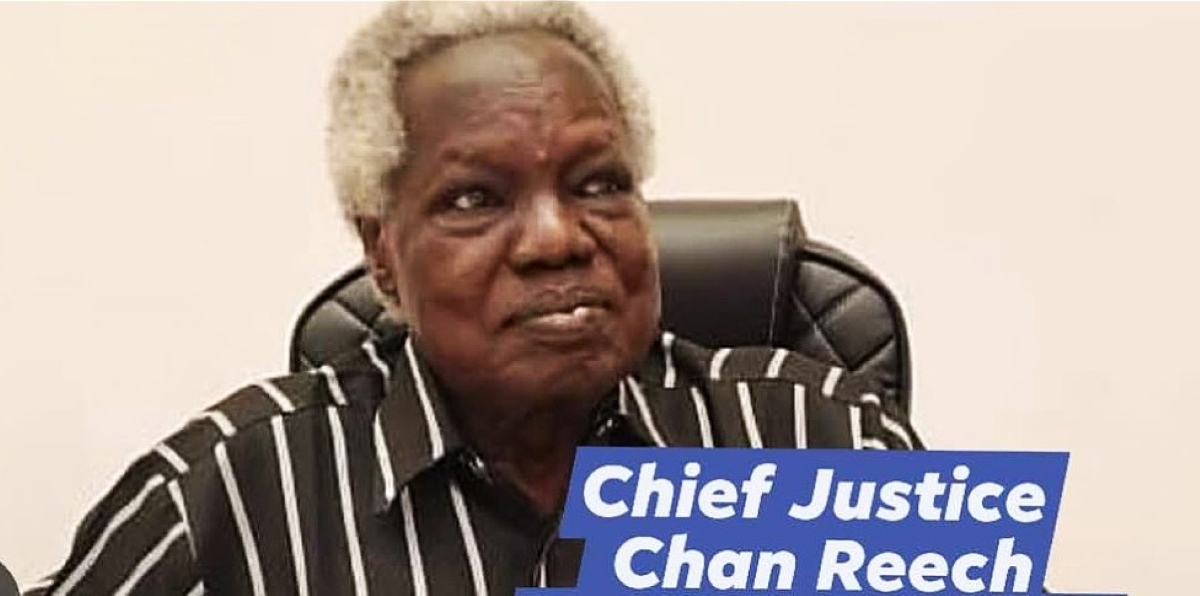President Salva Kiir Mayardit of South Sudan has shaken up the country’s judiciary pillar by dismissing Chief Justice Chan Reech Madut and his deputy Justice Gatwech Lul.
This sudden announcement was made through a presidential decree, catching many off guard, including the two long-serving justices who were reportedly surprised by the decision.
The appointment of new Chief Justice Dr Bak Deng and his Deputy, Chief Justice Laku marks a significant shift in the leadership of the country’s judiciary.
Dr. Bak Deng is set to take on the role of South Sudan’s new Chief Justice, bringing with him a wealth of legal experience and knowledge. Justice Laku will serve as the Deputy Chief Justice, ensuring a strong team at the helm of the judiciary.
This move by President Salva Kiir has sparked intrigue and speculation among legal circles and the public.
Most people in Juba wonder why the sudden dismissal of Chief Justice Chan Reech Madut and Justice Gatwech Lul, who have served in their roles for a significant period of time.

As more details begin to emerge, it will be interesting to see how this change in leadership will impact the judiciary and its ability to deliver justice to the people of South Sudan.
The appointment of new leadership brings hope for a fresh start and renewed focus on upholding the rule of law in the country.
The dismissal of Chief Justice Chan Reech Madut and Justice Gatwech Lul and the subsequent appointment of Dr. Bak Deng and Justice Laku, is described to be a significant development in South Sudan’s legal landscape.
However, this sudden change in leadership has sent shockwaves throughout the judiciary and has left many questioning the motivations behind the decision.
It remains to be seen how the new Chief Justice and Deputy Chief Justice will assert their authority and lead the judiciary in the wake of this shake-up.
As more information becomes available, it will be crucial to monitor the impact of these changes on the functioning of the judiciary and ensure that justice continues to be served in South Sudan.

